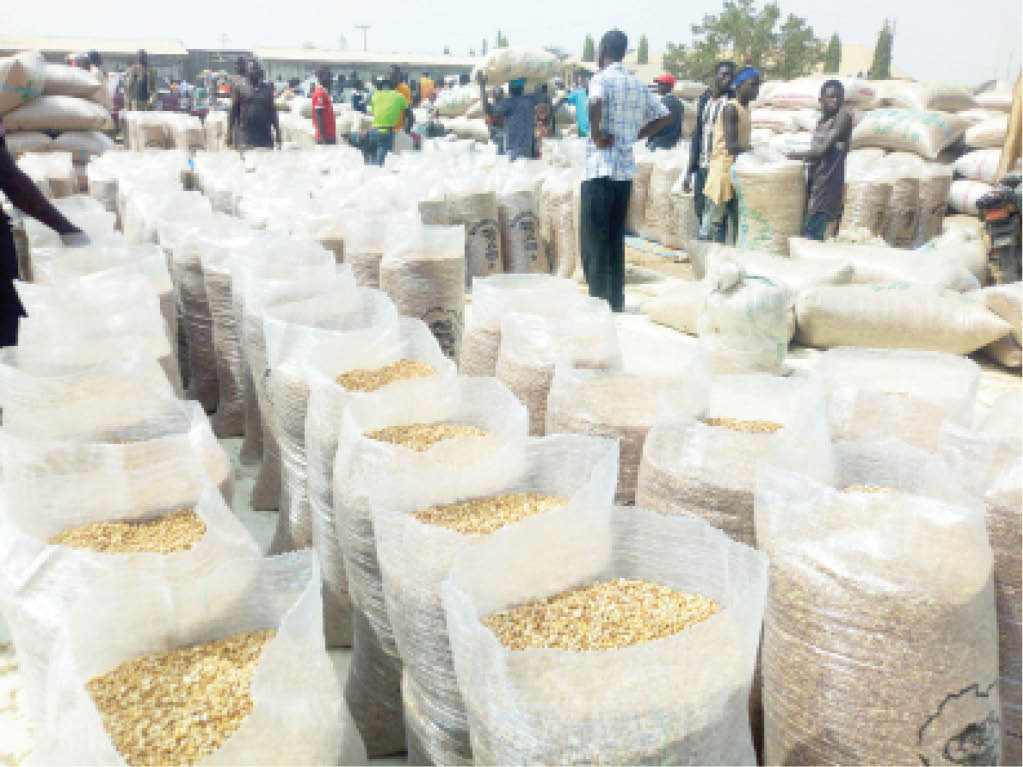‘Why Nigerian crops enter Europe, America as products of other countries’
Most of the agricultural produce that enter European, American and other markets in the West originate from Nigeria, but they enter those markets as products of other countries. This is due to the failure of exporters to adhere strictly to regulations, standards and specifications of those countries, Daily Trust on Sunday gathered. Speaking with journalists […]

Farm produce at a grains market near Abuja
Most of the agricultural produce that enter European, American and other markets in the West originate from Nigeria, but they enter those markets as products of other countries. This is due to the failure of exporters to adhere strictly to regulations, standards and specifications of those countries, Daily Trust on Sunday gathered.
Speaking with journalists at the event to mark the International Day of Plant Health in Abuja, the director-general, Nigerian Agricultural Quarantine Service (NAQS), Dr Vincent Isegbe, said the quarantine service would continue to maintain plant health, animal health and fish health to meet international standards and help generate economic growth.
Isegbe lamented that most of the agricultural produce were rejected entry into the European and American markets because of flagrant disregard of specification by both the owners and the exporters to meet international standard.
“The problem is that other countries come to Nigeria and buy off agricultural produce, such as ginger, garlic and so on, then go to repackage them and export them. We want to work with stakeholders along the value chain to ensure that Nigeria’s agricultural produce make it out through the right channel. This will help us generate money for Nigeria and our farmers,” he said.
He said that although Nigeria was blessed with different agricultural produce that could fetch money for the country through export, there was the need to subject the goods to the pre-requisite quarantine inspection and certification before dispatch.
Reacting, the Minister of Agriculture and Rural Development, Dr Muhammad Muhmood Abubakar, said government was reviewing the effect of the implementation of some of its circulars that saw the displacement of the NAQS from its proper position at the ports of entry.
He said the NAQS was the single point of command for all agricultural quarantine activities; therefore, it needs to have an adequate leverage to execute its statutory mandate.
“Going forward, the federal government will continue to ensure that our risk assessment activity is directed at priority pests and pathways and guided by cutting-edge science. We will continue to meet our international obligations and honour our phytosanitary agreements with our trade partners so that Nigerian businesses can trade in clean plant materials and grow,” he said.
